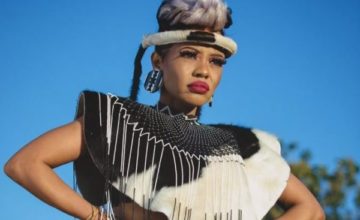
As the digital age grows a lot of young people are taking advantage of it.
So many people are shifting to online radio stations, watching shows on Netflix and Showmax as well as reading news online.
Podcasts have become another way for creatives to express themselves, complement business goals, and create deeper connections with an audience.
The likes of MacG, Sol Phenduka, Scoop, Rea Gopane, Amanda duPont and so many other locals have tapped in the industry and they are doing so well.
If you have always wanted to be a pod-caster, the following pointers can come in handy.
1 Planning
This is the first and one of the most important stages of making a podcast. You’ll want to spend a good amount of time here before you move on. You will need research, a lot of brainstorming as well as bench marking for your podcast. You will also have to choose a topic, format, and name.
2. Choose a topic
You want your podcast to be focused on a particular topic or niche. Try to narrow it down to something you can speak about for many episodes (100+) but that isn’t so broad that you won’t appeal to your potential audience. You can always expand your topic later as you get more popular.
3. Choose a name
This is another important stage to consider carefully. Some people prefer names that are descriptive of what the show is about, while others just go for random names. Whatever the case, just make sure that your name is catchy and it is much broader than your topic.
4. Pick a co-host
Sometimes it’s much easier to start podcasting if you have a co-host. You will naturally have a more engaging conversation if you both share your points of view on a topic. It can also be helpful to have someone to keep things on track. On top of that, you can split additional tasks of editing, promoting, and more. Just make sure both of you are committed to it for the long term.
5. Setting up
Just like any other business podcasts need capital. You need to have money as well as the right equipment to push your hustle. A solid microphone, pop filter, and set of headphones will cover your bases and bring your podcast from good to great. Invest in the best podcast recording software for beginners.
6. Recording
Learn script writing techniques and step-by-step recording tutorial. If you’re just recording a solo episode or want to record an intro to an interview you did, simply select the track you want to record to and click the red Record button up top:
If you have multiple hosts, you’ll need to click Track -> Configure Track Header and check Record Enable. This will give you the option to enable multiple tracks to record at once and you’ll see the Record Enable button on each track:
7. Editing and producing
Follow step-by-step editing tutorials and tips. If you haven’t used editing software before, even simple actions in GarageBand or Audacity can be quite intimidating. If that’s the case, then Alitu might be the way to go. This is a ‘podcast making’ tool that automates a lot of the confusing technical parts, and practically builds your episode for you.
8. Publishing
It’s critical to submit your podcast to as many podcast directories as possible to make it accessible to everyone, no matter which platforms they prefer to use. All you need to do is make an account with each directory and submit your RSS link. Pick a podcast hosting provider and distribute your podcast to listening apps like Spotify.
9. Launching
Basically, the elements of launching a podcast includes some of the same things as film premieres or newly published books. An official date is decided and the time leading up to launch is full of promotional efforts to generate buzz. At times, finding the inner confidence to launch is what holds a lot of hosts back. . But once the first episodes hit the airwaves, the rush of seeing strangers connect with the show was the spark they needed to push forward.
10. Growing your podcast
Build a launch plan and ongoing podcast marketing strategies. One smart way is to promote yourself to podcast listeners by being a guest on another show. Another way is to use audiograms which are perfect for Facebook, Twitter, and Instagram promotions. You can also use Buzzsprout’s social sharing feature to generate teaser videos and start sharing!

